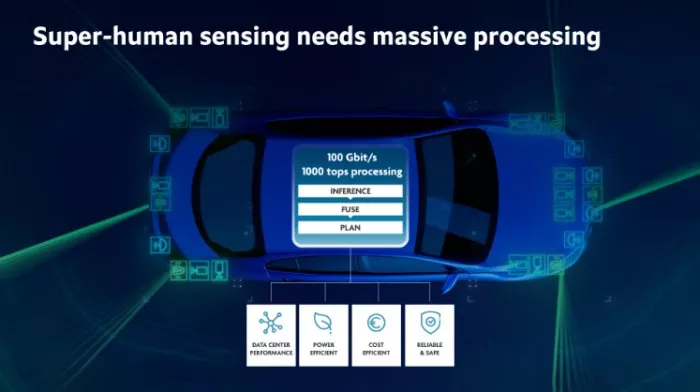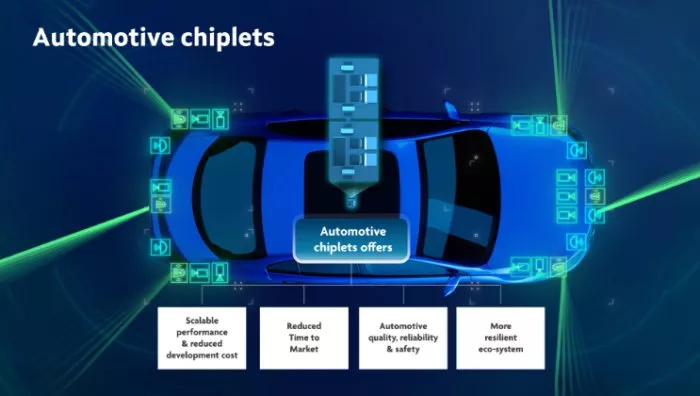Marvell Joins Imec Automotive Chiplet Initiative to Facilitate Compute SoCs for Super-human Sensing
Marvell is excited to announce that we’ve joined the automotive chiplet initiative coordinated by imec, a world-leading research and innovation hub in nanoelectronics and digital technologies. Imec has formed an informal ecosystem of leading companies from multiple automotive industry segments to address the challenge of bringing multi-chiplet compute modules to the automotive market.
The goal of imec’s automotive chiplet initiative is to address the design challenges that arise from ever-increasing data movement, processing, storage and security requirements. These demands complicate the automotive manufacturers’ desire for scalable performance to address different vehicle classes, while reducing costs and development time and ensuring consistent quality, reliability and safety.
And these demands will be made even more intense by the coming era of super-human sensing. The fusion of data from multi-spectral cameras (visible and infrared), radar and LiDAR will enable “vision” beyond human capability. Such sensor fusion will be a critical requirement for safe autonomous driving.

Source: imec presentation at ITF World, May 2023
This new era will require data center-level processing and networking power.
As the initiative’s name implies, the development and use of chiplets is foundational to addressing these challenges.

Source: imec presentation at ITF World, May 2023
The results of the initiative are expected to have wide-ranging impact on scalability, time to market, safety and resiliency, to name a few.
If you’re familiar with Marvell’s position as a leader in Automotive Ethernet, you’ll understand our interest and expertise in high-speed networking that must accompany such high-performance compute.
But you may be wondering how our participation in this initiative fits with that specialty. The answer is that Marvell brings to the imec ecosystem a rich history of chiplet development, including multiple generations of high-performance chiplet-based SoCs, a patented zero-overhead scalable multichip technology, and a vast portfolio of die-to-die interconnect IP foundational to chiplet-based designs.
With this experience and intellectual property behind us, the Marvell role in the initiative will be to innovate alongside other imec ecosystem members to drive current standards to be useful for automotive applications. With automotive-compatible interconnect standards in hand, the initiative will foster the growth of a broader ecosystem that can maximize chiplet technology reuse.
Chiplet reuse will reduce R&D spend and speed time to market. It will also reduce risk due to the use of known-good designs from the previous generation. Finally, it will reduce development cost, as new designs will not require a clean-slate starting point. Thus, vehicle makers will be able to more quickly design SoCs using a chiplet "Lego" approach, facilitating the development of scalable central compute SoCs to align with vehicle offerings from entry level to premium tier.
The results of the initiative will usher in a new era of compute SoC to align with the coming sensor fusion era. Consumers will be delighted to get the affordable, high-tech vehicle they crave, with zero emissions, zero accidents, and zero technology lag.
Related Chiplet
- DPIQ Tx PICs
- IMDD Tx PICs
- Near-Packaged Optics (NPO) Chiplet Solution
- High Performance Droplet
- Interconnect Chiplet
Related Blogs
- Cadence Commits to Join imec Automotive Chiplet Programme
- A look back at the Automotive Chiplet Forum 2025
- 4 takeaways from the 2nd automotive chiplet conference
- Jumpstarting the Automotive Chiplet Ecosystem
